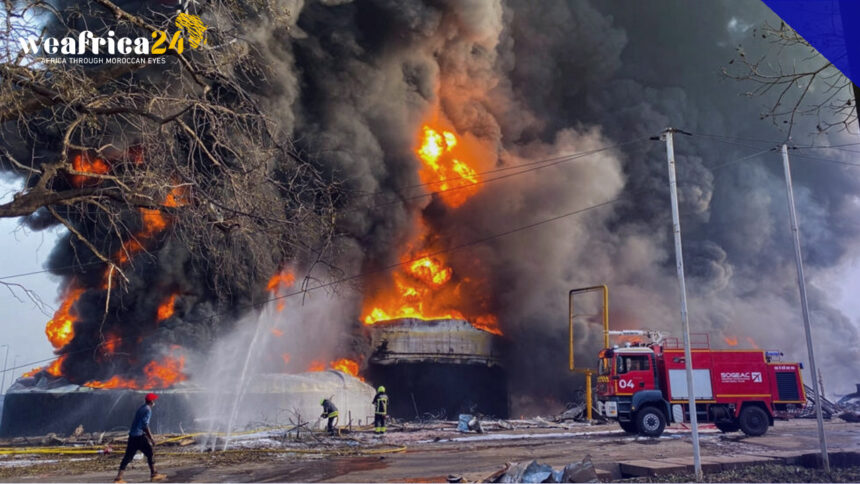A week after the explosion at the main fuel depot in Conakry and President Colonel Mamadi Doumbouya’s visit on December 25, the state has committed to addressing the shortages of gasoline and diesel. Grappling with the challenging fuel supply situation in the country, authorities have implemented various measures, including the requisition of a portion of stocks from mining companies.
Last week, Prime Minister Bernard Goumou stated that “this crisis would take time” and described it as a multifaceted “tragedy,” affecting both public services and the private sector, which came to a halt.
The most immediate concern is the supply of gasoline, the most widely used fuel for transportation of people and goods across the country. With the explosion in Kaloum, the cost of transportation and goods carried by automobiles has risen alongside the price of fuel.
According to experts, the national daily consumption of gasoline averages around 2,400 m3. However, a quantity ten times greater was lost in the Kaloum depot explosion.
Guinea has reached out to its neighbors to replenish stocks throughout the country. Sierra Leone, with Freetown being the nearest capital to Conakry, has already delivered around a hundred tank trucks, and another convoy is en route from Senegal. Ivory Coast is also set to contribute, having pledged the equivalent of 100 million CFA francs in fuel.
For diesel, the government plans to seek assistance from abroad and has announced the requisition of a portion of the reserves of mining companies. These companies heavily rely on diesel and fuel oil for their operations, with a particular emphasis on supplying the state-owned Electricité de Guinée (EDG), the country’s primary electricity provider. EDG will be given priority to ensure the distribution of electricity across the country.
Meanwhile, authorities are working on a sustainable solution to curb fuel price speculation and end the rationing of gasoline. Currently, individuals and transporters are limited to refueling at gas stations with a maximum of 25 liters for vehicles and 5 liters for motorcycles and tricycles.







